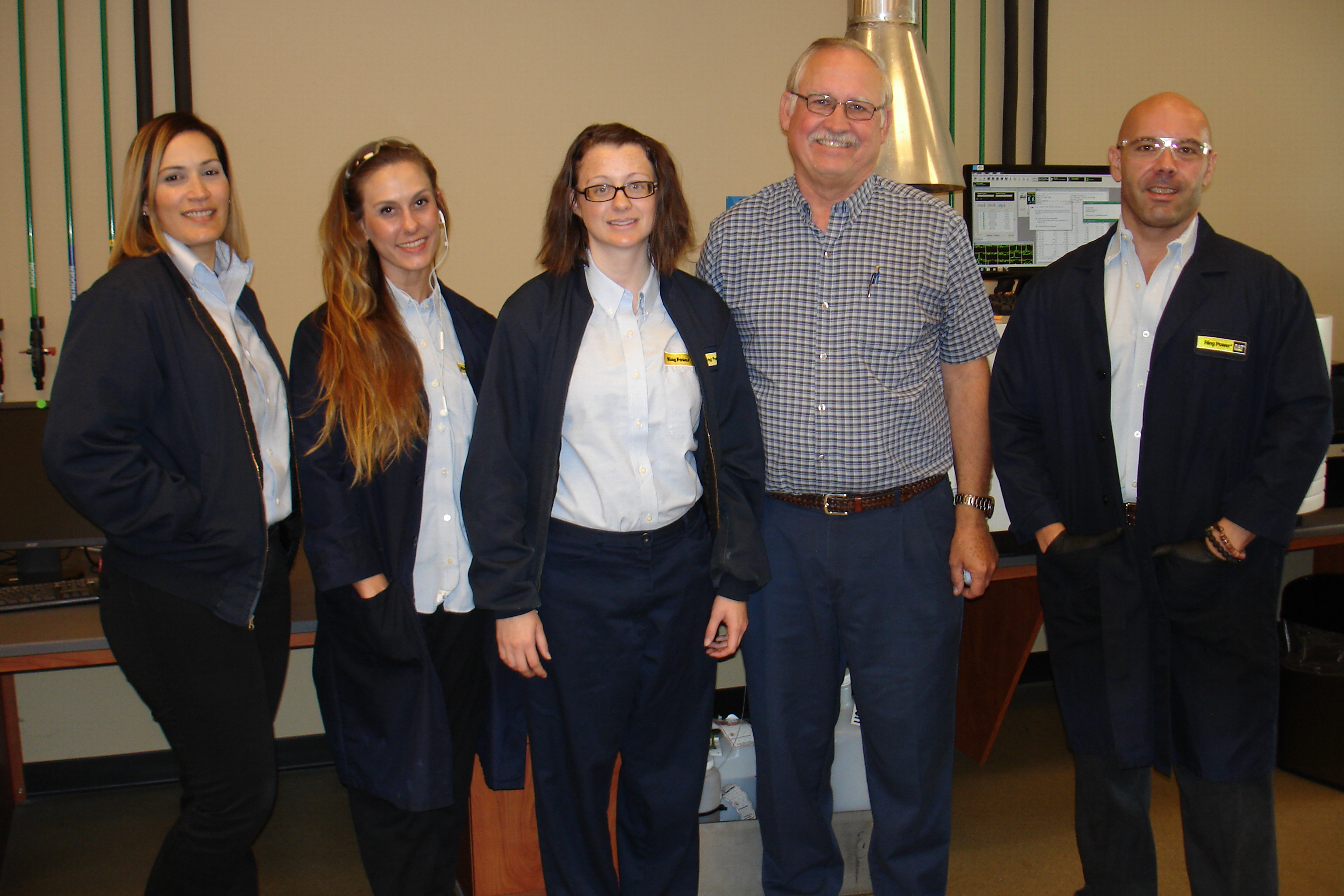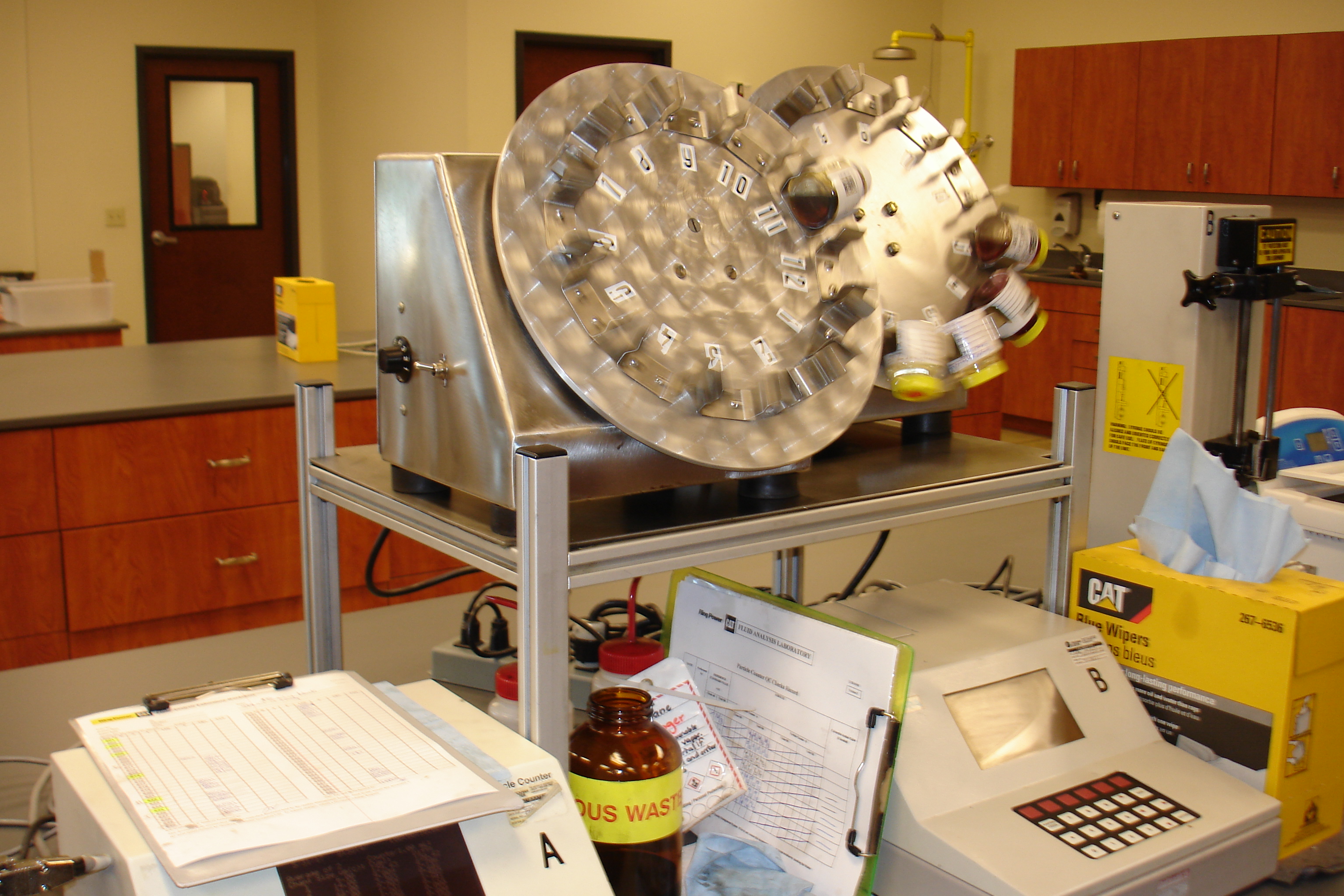Ring Power's Fluids Analysis Lab (a.k.a. “Oil Lab”) is one of the best in the nation.
Located in Tampa’s main service building, it houses about $1 million worth of high-tech diagnostic equipment and computer software and is staffed by a dedicated team of oil lab technicians ― five in Tampa and one in St. Augustine ― who process anywhere from 400 to 500 fluid samples each and every day!

Taking samples of oil, fuel and coolant to diagnose a machine’s operating condition is a good way to prevent component failures and unplanned downtime. Much like conducting biometric screenings to diagnose a person’s state of health, analyzing fluids is an accurate, reliable way to detect and resolve potential problems before they become major issues.
But putting 60+ samples an hour through a battery of sophisticated chemical tests without mixing them up is, by itself, no small feat.
Each fluid sample undergoes five tests ― depending on the fluid type and the preliminary results, some might require seven ― to check for viscosity, contaminants and wear metals. Think about that for a minute: That means our oil lab technicians must conduct and record the results for anywhere from 300 to 400 or more chemical tests every hour.
Add to that the extreme care that must be taken to ensure the validity of the test results ― measuring precisely, calibrating the equipment, following set procedures, keeping accurate records ― and you’ve got a real challenge.
Fortunately, our oil lab technicians are up to it.
Their days begin at 5:30 a.m., when Dennis Buckner brings in the sample bottles and sorts them by machine and fluid type. By 6:00, Sheri Delgado is hard at work, entering each sample into the LIMS (Laboratory Information Management System) database according to the tests it requires while Alice Martinez begins checking and calibrating the equipment, monitoring the operating procedures, and verifying the data entries. By 6:30, Amelia Cullen and Travis Veitch are running the samples through the gamut of chemical tests and by 8:00, Eileen Garcia is at her computer in WCC, evaluating and interpreting the new data, comparing it with established baselines and previous results to look for trends.

Working in the oil lab takes commitment, integrity and ― above all else ― teamwork.
A basic knowledge of engines, hydraulics, transmissions and power trains is also helpful. Our oil lab team keeps up on equipment technology via online studies; Eileen, who interprets the test data, and Sheri, who backs up Eileen, must be recertified by Caterpillar every two years for this important job.
We applaud our team of topnotch oil lab technicians for their commitment to excellence. In March, they processed 10,638 oil samples, setting a new record and putting them on track to beat last year’s total. It’s easy to see why Ring Power has been at the forefront for fluids analysis since 1974.